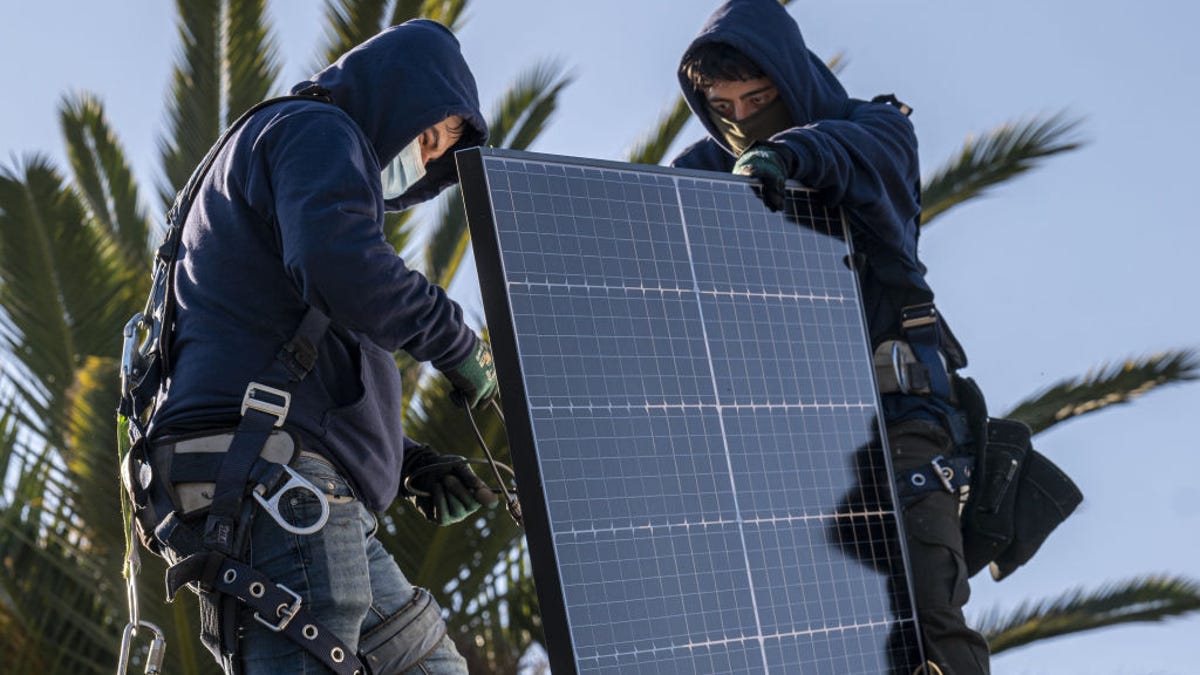Net Metering in California: What the Big Change Means for Homeowners With Solar Panels
Critics say the new system will amount to a 75% cut in compensation for customers.

Under the new net billing systems, the daytime compensation for excess solar is about 75% less.
A big change to how solar energy is measured in California just went into effect that may cause homeowners in the state to reassess the value of installing solar panels.
Previously, whatever excess energy a photovoltaic system generated was fed back to the grid and the homeowner received a near dollar-for-dollar credit on their electricity bill. This is called "net metering."
But, as of April 15, any new rooftop setup will earn a much smaller credit for excess kilowatts. About 75% smaller, according to the California Solar and Storage Association, or CALSSA.
Can solar panels save you money?
Interested in understanding the impact solar can have on your home? Enter some basic information below, and we’ll instantly provide a free estimate of your energy savings.
The new system, known as "net billing," is intended to get solar users to add a home battery backup system. Then, excess energy can be stored, rather than sent right back to the grid. Homeowners could then decide when to return the energy, getting a better return at night and in winter, when electricity rates are higher.
But CALSSA Executive Director Bernadette Del Chiaro warns that net billing will cast a shadow on California's solar market, the largest in the US. Under the old system, solar panels paid for themselves in about six years, Del Chiaro told San Diego's CBS 8. Under the new rules, she said, "we are kicking that to 10 years or further."
And the cost of a home battery -- more than $15,000 before installation, according to CNET's sister site SaveOnEnergy -- can be prohibitive. Currently, less than 10% of new solar buyers in the state get storage.
"For middle-class and working-class neighborhoods where solar is growing fastest, it puts clean energy further out of reach," Del Chiaro said in a statement.
Read more: Solar Panel Buying Guide: Everything You Need to Know
Roger Lin, an attorney with the Center for Biological Diversity's energy justice division, said the new billing plan "[widens] the divide between those who can afford solar and those who can't."
The change affects customers of California's three largest investor-owned utilities: Pacific Gas & Electric, Southern California Edison and San Diego Gas & Electric. Combined, they service three-quarters of the state.
But only rooftop systems approved after April 15 are subject to net billing. Preexisting setups are grandfathered in.
Not everyone sees net billing as a catastrophe. Suzanne Leta, head of policy and strategy at residential solar company SunPower, said customers who combine a rooftop setup with a battery will enjoy more savings than they would with net metering.
Homeowners who don't have a battery will still save, Leta told CNET, "it just won't be as robust."


